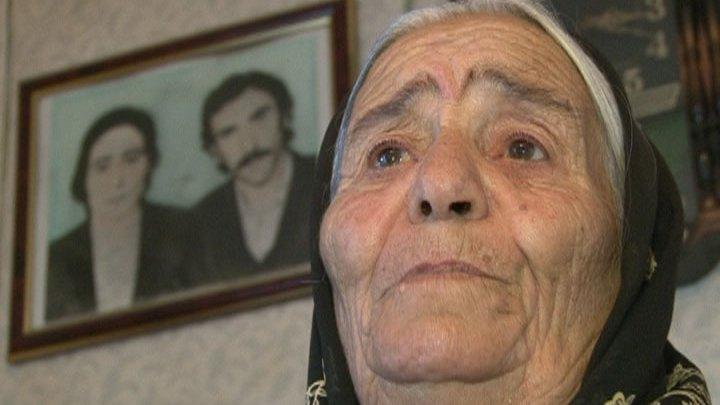Armenia rift over trade deal fuels EU-Russia tension
- Published
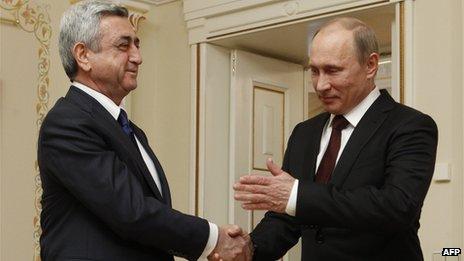
The Armenian president (left) wants to maintain strong economic and military ties with Russia
Armenia's decision to join a Russian-led customs union has thrown EU plans to forge closer ties with the Caucasus republic into disarray.
The EU plans to conclude association agreements with several ex-Soviet states in November, but Armenia is unlikely to be among them.
Such agreements are seen as key steps on the path to eventual EU membership.
Armenia's move has fuelled Western anxiety that Russia wants to exert control over ex-Soviet states.
The European Commission is asking Armenia to clarify its position. Armenia had been preparing to initial the agreement with the EU in November, after more than two years of negotiations.
The Commission says the agreement is "not a zero-sum game" - that is, not simply a choice between Russia or the EU.
A statement from EU Enlargement Commissioner Stefan Fuele said "we take note of Armenia's apparent wish to join the customs union.
"We look forward to understanding better from Armenia what their intentions are and how they wish to ensure compatibility between these and the commitments undertaken through the Association Agreement and DCFTA [Deep and Comprehensive Free Trade Area]."
Energy leverage
However, a foreign policy expert at the European Parliament, Conservative MEP Charles Tannock, told the BBC that Armenia could not operate two different sets of tariff rules.
"If you join one customs union you can't have a free trade agreement with another jurisdiction," he said.
The EU association agreements go beyond measures to ease trade - they also entail commitments to respect democratic standards and carry out institutional reforms, which are not part of Russia's customs union.
For years the EU has been pursuing a new "Eastern Partnership" with Moscow's former Soviet allies.
Moldova and Ukraine are on course to sign association agreements with the EU in November. But both have come under Russian pressure to remain in Moscow's sphere of influence - and their heavy reliance on Russian gas puts them in a vulnerable position.
On Tuesday a senior Russian envoy, Dmitry Rogozin, told Moldovans that "energy supplies are important in the run-up to winter - I hope you won't freeze".
Speaking later, Moldova's President Nicolae Timofti said his country would pursue integration with the EU and "cannot live under pressure or threats".
Russian-speaking separatists - armed by Russia - still control Trans-Dniester, a large strip of land that broke away from Moldova.
EU member Lithuania, itself a former Soviet republic, will host the November meeting with partner countries. Its Foreign Minister Linas Linkevicius said "we see the recent decision of Armenia to join the customs union in the context of the pressure that Russia has been and still is exercising not only on Armenia, but also on other partner countries".
Military tensions
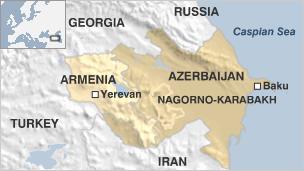
Russia and Armenia - former Soviet partners with shared Christian traditions - have long had close ties.
Armenia is still locked in a bitter territorial dispute with Muslim-majority Azerbaijan - and some observers have drawn a direct link between that dispute, over Nagorno-Karabakh, and the customs union plan.
Mr Tannock said concern about Russian arms sales to Azerbaijan appeared to have influenced Armenian President Serge Sarkisian more than any other issue.
Oil-rich Azerbaijan is receiving military equipment from Russia worth up to $1bn (£843m), including tanks and artillery, in a drive to modernise its armed forces, Russian media report.
Since the 1990s Nagorno-Karabakh war Armenia has had close military co-operation with Russia, and without that "Armenia would be totally vulnerable to attack by Azerbaijan", Mr Tannock told the BBC.
He said Russia "seems to be winning battles now" in its traditional sphere of influence and "has caught the EU a bit on the hop".
An Armenian political analyst, Richard Giragosian, called President Sarkisian's move "a strategic blunder", but added that "it is not yet a done deal - there is still time to correct this serious mistake" before the November summit with the EU in Lithuania.
Joining the customs union could increase Armenia's isolation and turn it into "little more than a small, subservient Russian garrison state", he told the BBC.
Mr Giragosian, head of the Regional Studies Center in Yerevan, noted an "asymmetry" in Armenia-Russia ties, with Russians having already bought key stakes in Armenia's energy sector, mining and strategic infrastructure.
The lack of a common border with Russia and the mismatch between their economies would complicate a customs union partnership, he said.
"Armenia is now poised to miss a unique opportunity to draw closer to Europe," he warned.
'Eurasian union'
Mr Sarkisian held talks with Russian President Vladimir Putin in Moscow on Tuesday, and drew a direct link between trade ties and the security partnership between former Soviet states.
Mr Sarkisian spoke of Armenia's "desire to join the customs union and get involved in the process of creating the Eurasian Economic Union". Mr Putin sees a future Eurasian union as an economic bloc pulling together former Soviet states. Currently Russia's customs union only embraces Belarus and Kazakhstan.
"I have stated on many occasions that, since we share a system of military security, it is impossible and inefficient to isolate ourselves from the corresponding geo-economical space," Mr Sarkisian said.
"This is a rational decision; it is a decision based on Armenia's national interests. This decision is not a rejection of our dialogue with European institutions."
In a tweet on Tuesday Sweden's Foreign Minister Carl Bildt said "seems as if Armenia will break talks on free trade agreement with EU and integrate with Russia instead. U-turn."
- Published30 January 2024
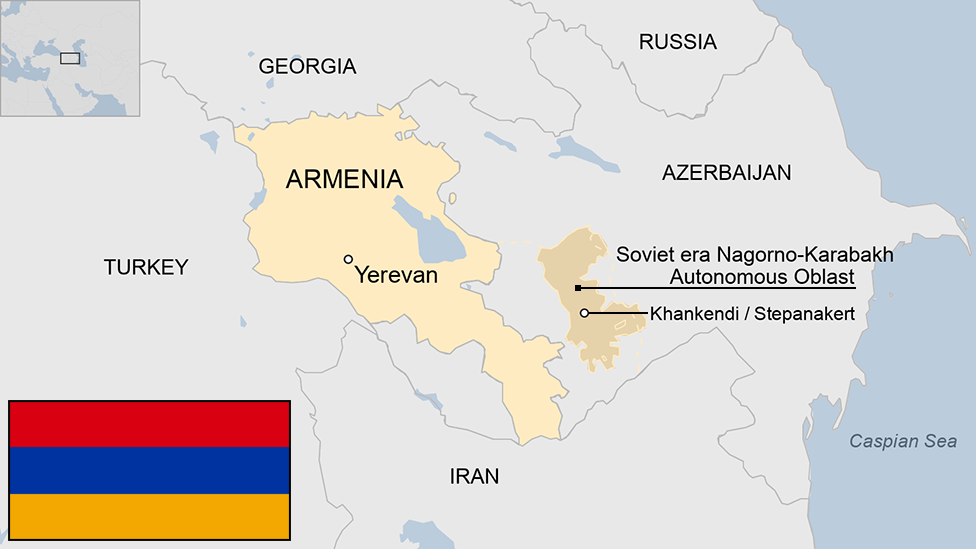
- Published4 January 2013
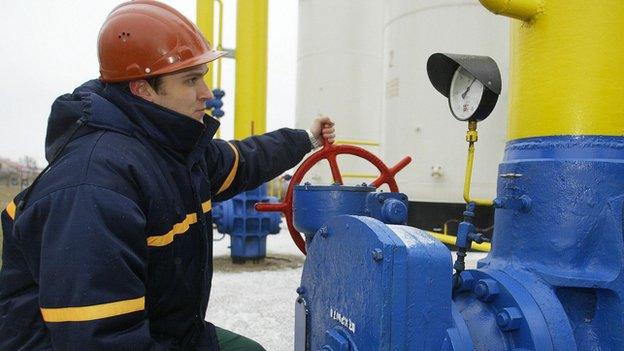
- Published30 January 2024
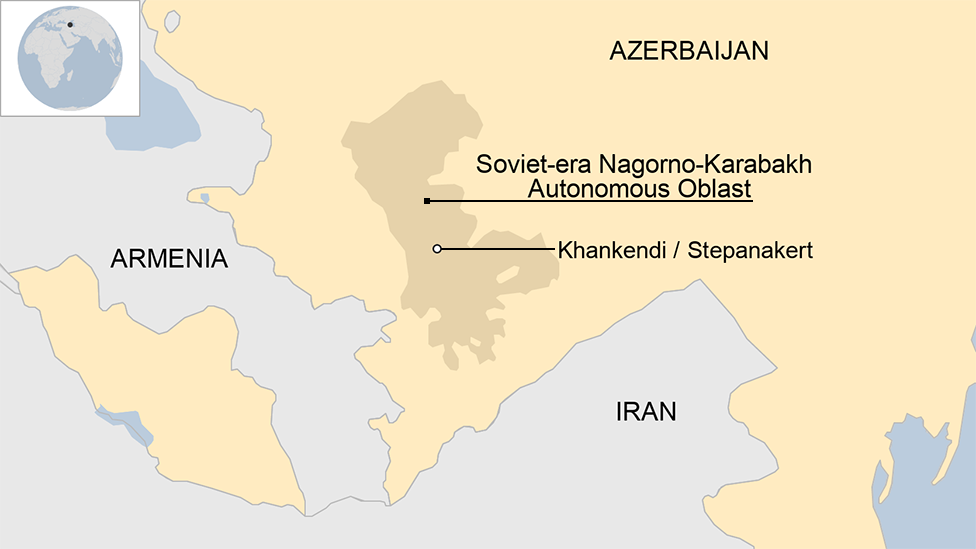
- Published16 December 2012
